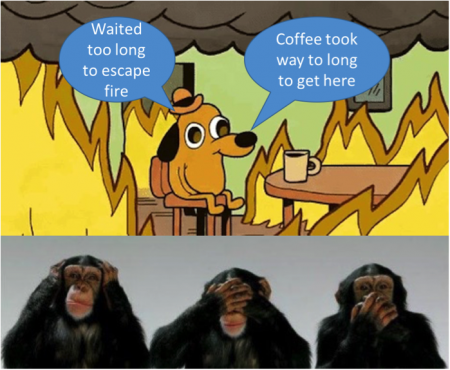Root Cause Tip Warning: Do not define the impact level of your incident too low or too high

When defining the Incident during a TapRooT® Root Cause Analysis and its impact to the business (the scope of your investigation), I often hear this statement…
“If we focus on the delay of correcting the problem, then less importance will be placed on what caused the problem.”
Take the scenario of a fire pump failing to turn on during a fire response test. The team originally wanted to focus on the pump failure only. Not a bad idea however, the pump could not be repaired for 2 weeks because of a spare part shortage. I pushed the team to raise the scope and impact of the investigation to Automatic Fire Suppression System out of service for 14 days.
Now this elevation of the incident does not lessen the focus on the pump failure, it does the opposite. A system down for 2 weeks elevates the focus on the pump failure because of impact and also allows the team to analyze why we did not have access to spare pump in a timely manner.
A caution also must be mentioned in that elevating the impact of an incident too high can cause a regulating agency to get involved or/and additional resources to be spent when not required.
Which problem is worse? Elevating a problem too high or not high enough? Your thoughts?



